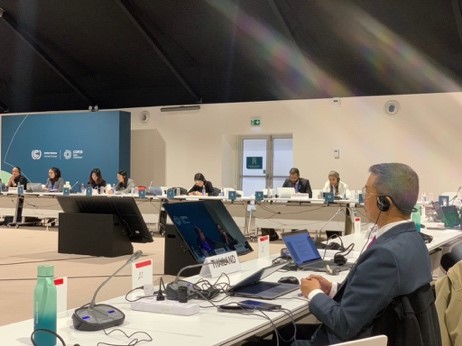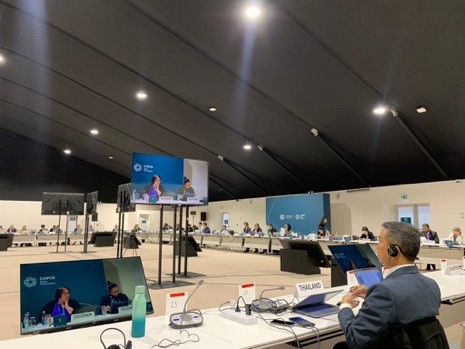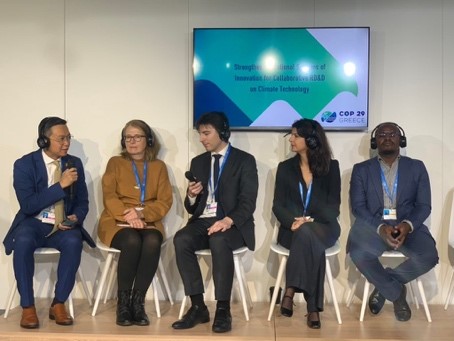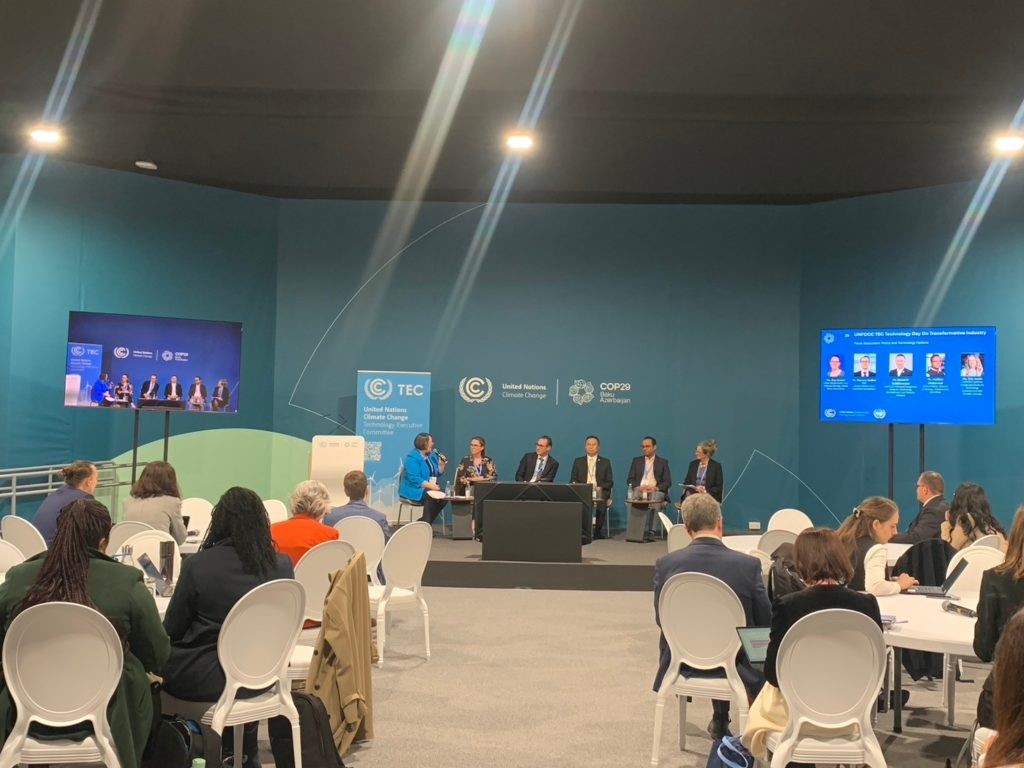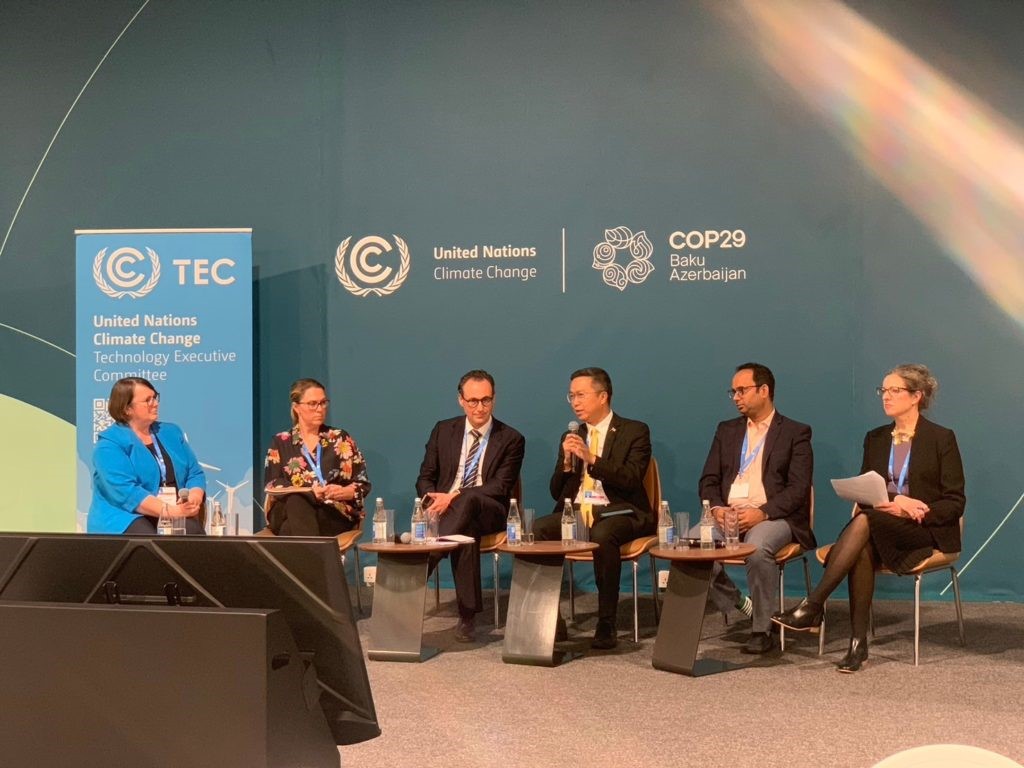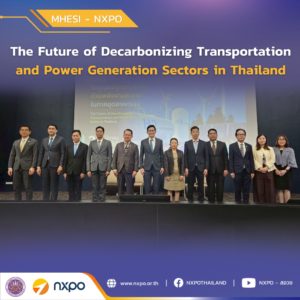In late November 2024, MHESI-NXPO joined the Thai delegation at the 2024 United Nations Climate Change Conference (COP29) held in Baku, Azerbaijan. NXPO President Dr. Surachai Sathitkunarat, together with NXPO Director of Sustainability Policy Division Dr. Saravanee Singtong and NXPO Policy Specialist Dr. Chanida Sansaard, shared key outcomes at a recent virtual seminar.
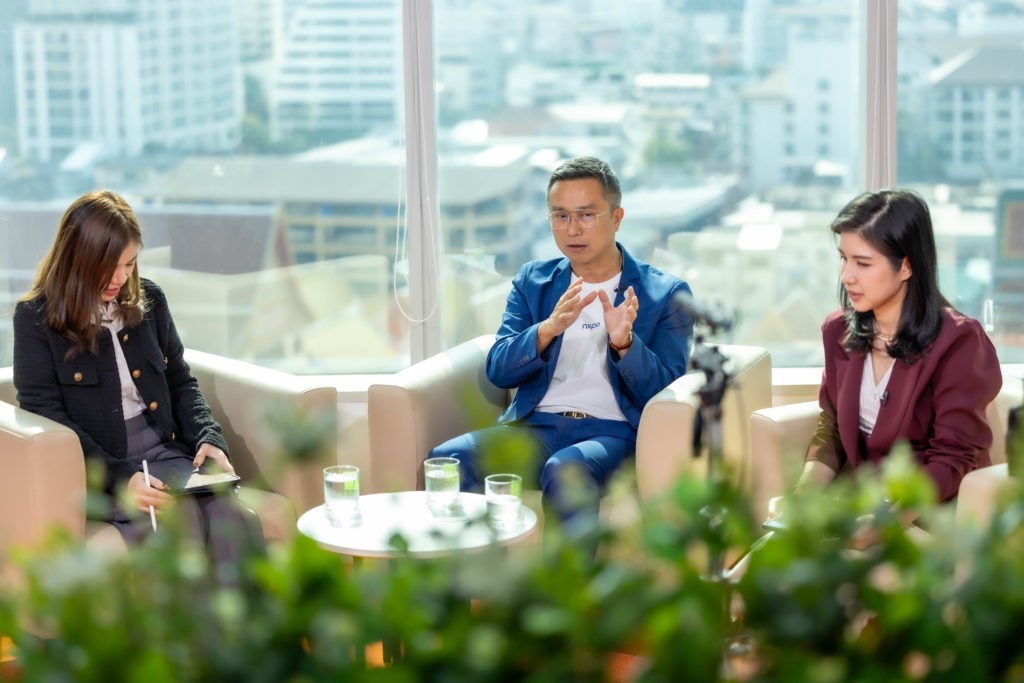
Dr. Surachai stated that NXPO has represented Thailand in climate technology development and transfer negotiations since COP15 in Copenhagen, Denmark, in 2009. Back then, the organization operated as the National Science Technology and Innovation Policy Office (STI) before being renamed NXPO five years ago. These negotiations involve hundreds of representatives from various countries, addressing national challenges and establishing consensus on strategies and guidelines.
He emphasized that climate change has evolved from an environmental concern into a multidimensional issue impacting disaster management, the economy, food security, trade, and finance. As a higher education and science policy agency, NXPO plays a critical role in advancing the climate agenda both domestically and internationally. Dr. Surachai advocated for integrating climate change into educational curricula to deepen understanding, especially for industries that must embrace green technologies to comply with international regulations.
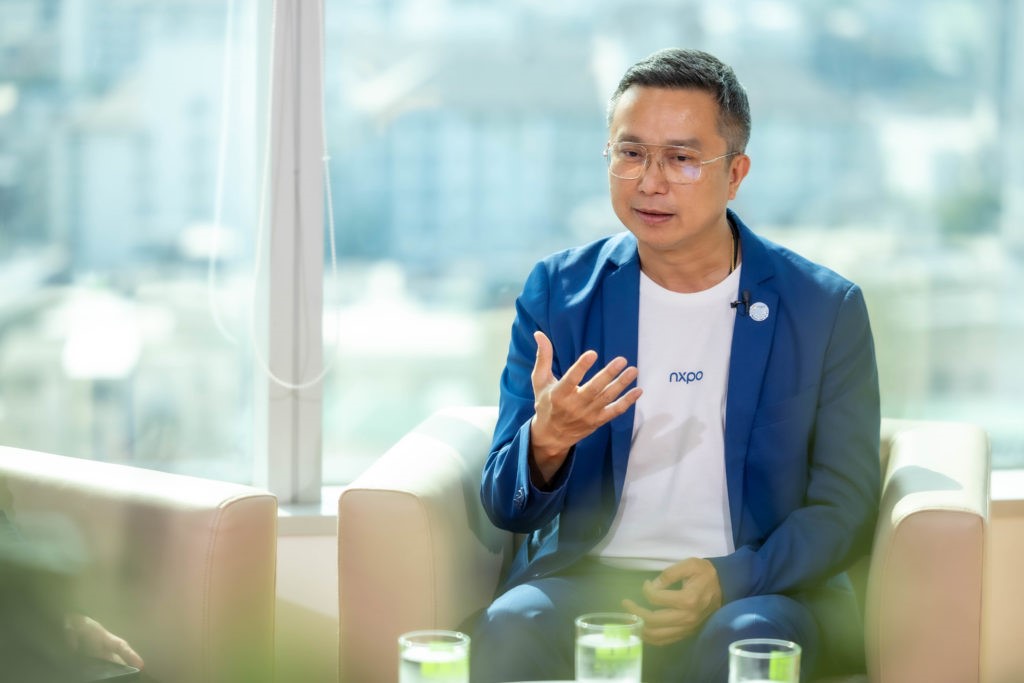
Dr. Surachai also underscored NXPO’s role as Thailand’s National Designated Entity (NDE) for climate technology development and transfer. Over the past decade, Thailand has implemented more than ten projects under this mechanism, ranking among the top globally. Current initiatives include developing the national hydrogen strategy and planning a blockchain-based crop insurance project. “NXPO aims to secure more funding from the Green Climate Fund (GCF), which has increased its annual target to USD 300 billion for funding developing countries, up from USD 100 billion over the past 15 years. The GCF also aims to raise funds from public and private sources to finance developing countries to the amount of USD 1.3 trillion per year by 2035. Our goal is to obtain USD 200 million to support projects on carbon capture, utilization, and storage (CCUS); hydrogen technologies; small modular reactors (SMRs); and micro modular reactors (MMRs).”

Dr. Saravanee detailed various activities that NXPO took part in during COP29, including participation in three side events alongside representatives from academia, government, industry, and international organizations. These events provided a platform to showcase NXPO’s climate initiatives, such as the Net Zero Campus, the National Innovation System for Climate Technology, and Hydrogen Technology Development, while fostering international collaboration. NXPO, in collaboration with the Department of Climate Change and Environment, organized the Innovation Zone within the Thai Pavilion, showcasing industrial decarbonization innovations and initiatives in Thailand. In addition, NXPO participated in the Subsidiary Body for Implementation (SBI) meeting to follow up on issues related to technology development and transfer.
Dr. Saravanee also highlighted NXPO’s involvement in major programs, such as the Saraburi Sandbox, Carbon Capture and Utilization (CCU), Circular Economy Transition, and the extension of BCG Indicators to Green Enterprise Indicators (GEI). The Saraburi Sandbox, a collaborative effort with the Thai Cement Manufacturers Association (TCMA), Siam Cement Group (SCG), the Federation of Thai Industries – Saraburi Chapter, and the Saraburi Provincial Administration, aims to develop a low-carbon city model. Together with the Federation of Thai Industries (FTI), NXPO is designing policies and mechanisms for large corporates to assist SMEs with the transition to a circular economy. The project to extend BCG Indicators to GEI involves key organizations, including the Office of Small and Medium Enterprises Promotion, the Thai Industrial Standards Institute (TISI), and the Management System Certification Institute (Thailand).
